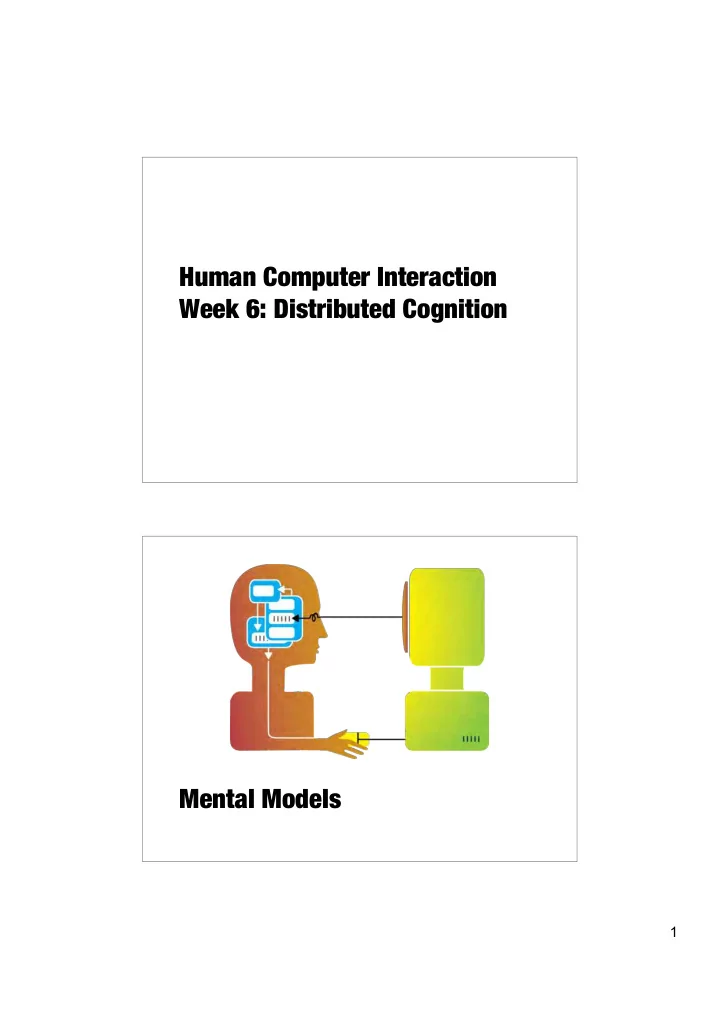

Human Computer Interaction Week 6: Distributed Cognition Mental Models 1
Distributed Cognition Work is more than the activity of a single individual working alone and without tools. 2
Two distinguishing principles 1.Boundaries of the unit of analysis for cognition 2.Range of mechanisms assumed to constitute cognitive processes Task: Sorting a deck of cards 3
Three ways that cognition is ‘distributed’ • Socially • Internal / External • Through time Functional system 4
Functional system • The system is constrained by the set of resources appropriated into the resolution of the problem. • The system, not the individuals performs the task. Practical Task: Cognitive Processes in the Library • In groups, see if you can identify cognitive processes in the setting of the library. • Map out the information flows through these processes. • How is the information represented and transformed. • Can you find examples of ‘cognitive artefacts’ or other concepts from this week’s lecture and readings? • For the discussion next week, prepare a presentation to show to the rest of the class. 5
Cognitive artefacts Embodied Cognition 6
Embodied Cognition Minds are not passive representational engines, whose primary function is to create internal models of the external world. The relations between internal processes and external ones are far more complex, involving coordination at many different time scales between internal resources—memory, attention, executive function—and external resources—the objects, artifacts, and at-hand materials constantly surrounding us. Socially Distributed Cognition 7
Culture and Cognition Culture and Cognition 8
Critical Questions • Is computation an appropriate metaphor for all activities? • Is cognition ? Readings • Y. Rogers, "A Brief Introduction to Distributed Cognition", Discussion Paper Interact Lab, School of Cognitive and Computing Sciences, University of Sussex, 1997 • Hollan, J., Hutchins, E., and Kirsh, D. “Distributed Cognition: Toward a New Foundation for Human-Computer Interaction”, ACM Transactions on Human- Computer Interaction, Vol. 7, No. 2, June 2000, pp 174-196. 9
Image Credits • http://www.flickr.com/photos/tim-owen/3330644976 • http://www.flickr.com/photos/oneeighteen/1346919647 • http://www.flickr.com/photos/oneeighteen/2891585120 • http://www.edunetconnect.com/cat/timemachine/images/ma ttang.gif Image Credits • http://www.flickr.com/photos/36122696@N08 • Herb Kawainui Kane • http://www.flickr.com/photos/idi0tech/1444716026 • http://www.science.uva.nl/museum/pictures/reiss3.jpg 10
Image Credits • http://www.flickr.com/photos/eob/78714830 11
Recommend
More recommend